Know All About Software Development Engineer In Test
4.9 out of 5 based on 6582 votesLast updated on 6th Feb 2024 5.4K Views
- Bookmark

Software Development Engineer in Test (SDET): Combines coding skills with testing expertise to ensure robust and reliable software quality.

TOC:
This blog navigates the landscape of Software Development Engineers in Test (SDETs), exploring their role, necessity in industries, responsibilities, essential skills, Croma Campus's training, and a conclusive reflection. Top of Form
- Introduction
- Who is an SDET - Software Development Engineer in Test?
- Need for SDET
- Roles and Responsibilities of an SDET
- Essential Skills for an SDET
- Become an SDET with Croma Campus
- Final Thoughts
Introduction:
In today's digital landscape, the Software Development Engineer in Test (SDET) assumes a pivotal role in ensuring the quality and reliability of software products. As technological advancements continue to accelerate, the importance of flawless software that meets the highest standards of performance, security, and functionality becomes increasingly apparent. The SDET stands at the intersection of software development and quality assurance, contributing significantly to the seamless operation of software applications.
Who is a Software Development Engineer in Test?
An SDET is a multifaceted professional within the software development domain, blending the expertise of a software engineer with that of a skilled tester. Unlike traditional testers who focus solely on identifying issues, an SDET is involved throughout the software development lifecycle.
They possess a comprehensive understanding of programming languages, testing frameworks, and software development methodologies. This unique blend allows them to not only identify and fix issues but also proactively prevent potential problems by implementing robust testing frameworks and automation strategies.
You May Also Read: Different Types In Software Testing
Why do we need an SDET?
Modern businesses are redefining their operational paradigms, seeking greater efficiency and productivity with fewer resources. In this pursuit, the role of Software Development Engineer in Test (SDET) emerges as a singularly versatile asset. SDETs uniquely bridge the gap between development and testing, contributing to both facets of the software lifecycle. They adeptly handle software development while concurrently managing the crucial testing phase, making them indispensable in the pursuit of high-performance, reliable software.
The Trend of Multi-Skilled Professionals
In the contemporary IT landscape, there's a discernible trend toward hiring professionals with diverse skill sets. SDETs epitomize this trend, embodying a rare blend of development and testing prowess. Their ability to navigate seamlessly between coding and testing environments positions them as highly sought-after professionals in the industry.
High Demand in Various Fields
The demand for Software Development Engineers in Test (SDETs) is pervasive across diverse fields:
- Technology Enterprises: In technology-driven enterprises, SDETs spearhead software quality assurance, ensuring that cutting-edge technologies are not only developed but also rigorously tested for reliability and performance.
- Finance and Banking: In the finance sector, SDETs play a critical role in ensuring the robustness and security of financial software applications, and safeguarding sensitive data and transactions.
- Healthcare and Biotech: In healthcare and biotech industries, SDETs contribute to the development and testing of software critical for patient care, ensuring accuracy and compliance with regulatory standards.
- E-commerce and Retail: In the e-commerce realm, SDETs are instrumental in delivering seamless user experiences by verifying the functionality and usability of online platforms.
The multifaceted skill set of SDETs positions them as linchpins in ensuring software quality across various industries. Their ability to straddle development and testing domains elevates them as indispensable assets, driving innovation and reliability in software products.
Roles and Responsibilities of an SDET
An SDET is a multifaceted professional who plays a pivotal role in ensuring the quality and reliability of software products. Their responsibilities encompass:
- Test Strategy Design: Collaborating with software engineers to devise comprehensive testing strategies tailored to specific project requirements.
- Automation Development: Creating and implementing automated test scripts using industry-standard tools like Selenium, Appium, or JUnit.
- Performance Testing: Conducting rigorous performance tests to ensure software scalability, efficiency, and reliability.
- Quality Assurance Advocacy: Advocating for best practices in testing methodologies and ensuring adherence to quality standards throughout the development lifecycle.
- Code Quality Evaluation: Assessing code quality and providing valuable insights to developers for enhancing software robustness.
Technical Skills for SDET
The technical skill set required for an SDET encompasses:
- Programming Languages: Proficiency in languages such as Java, Python, C#, or JavaScript for scripting automated tests and developing testing frameworks.
- Testing Frameworks: Expertise in utilizing testing frameworks like Selenium, Appium, or JUnit for automated testing and validation.
- Version Control Systems: Familiarity with version control tools like Git or SVN for managing and tracking changes in codebases.
- Understanding of Development Methodologies: Knowledge of Agile, DevOps, or other development methodologies for seamless collaboration within development teams.
Non-Technical Skills for SDET
Beyond technical competencies, certain non-technical skills are crucial for SDETs:
- Critical Thinking: Ability to analyze complex scenarios, identify potential issues, and devise innovative testing solutions.
- Problem-solving: Aptitude for troubleshooting and resolving technical challenges efficiently and effectively.
- Communication Skills: Clear and concise communication with diverse stakeholders across the software development lifecycle, ensuring seamless collaboration and knowledge sharing.
- Attention to Detail: Meticulousness in identifying even the minutest of discrepancies or potential vulnerabilities in software systems.
Croma Campus, with its comprehensive Software Testing course, not only focuses on honing technical competencies but also emphasizes the development of these essential non-technical skills. This holistic approach ensures that aspiring SDETs are well-equipped to navigate the multifaceted demands of the software development landscape.
You May Also Read: Software Testing Interview Questions
Become an SDET with Croma Campus
Croma Campus stands as a reputable institution offering a comprehensive Software Testing Course tailored to aspiring SDETs. This course equips individuals with the necessary technical expertise and practical skills required to excel in the role.
With a curriculum covering manual and automated testing, hands-on experience with industry-standard tools, and exposure to real-world scenarios, Croma Campus prepares individuals to navigate the complexities of software testing confidently.
Moreover, their emphasis on a holistic skill set, combining technical proficiency with critical thinking and communication skills, ensures that graduates are well-prepared for the dynamic demands of the industry.
Final Thoughts
The role of an SDET (Software Development Engineer in Test) is indispensable in ensuring the quality, reliability, and functionality of software in today's tech-driven world. With Croma Campus's comprehensive Software Testing course, aspiring professionals can embark on a journey towards becoming adept SDETs.
The combination of technical expertise, problem-solving skills, and effective communication gained through Jira Training forms a strong foundation for success in the dynamic world of software development and testing.
Subscribe For Free Demo
Free Demo for Corporate & Online Trainings.
Your email address will not be published. Required fields are marked *

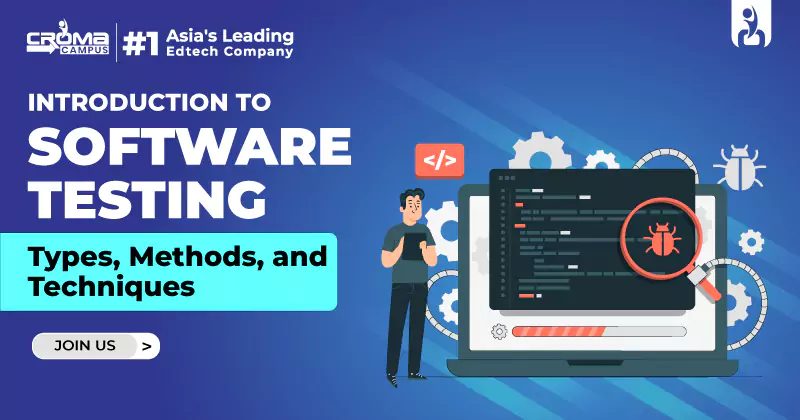


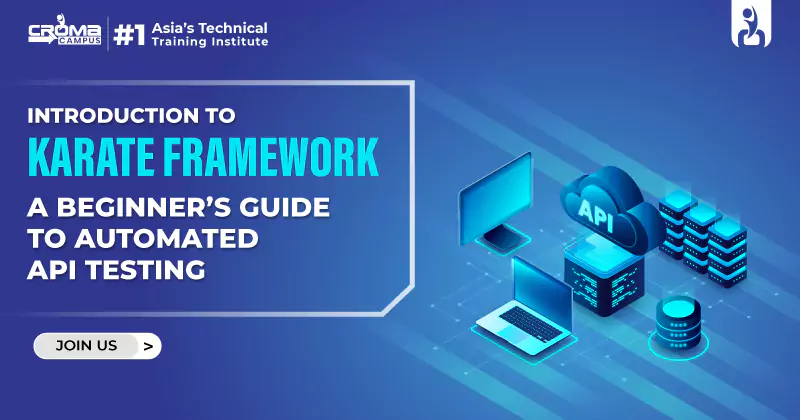


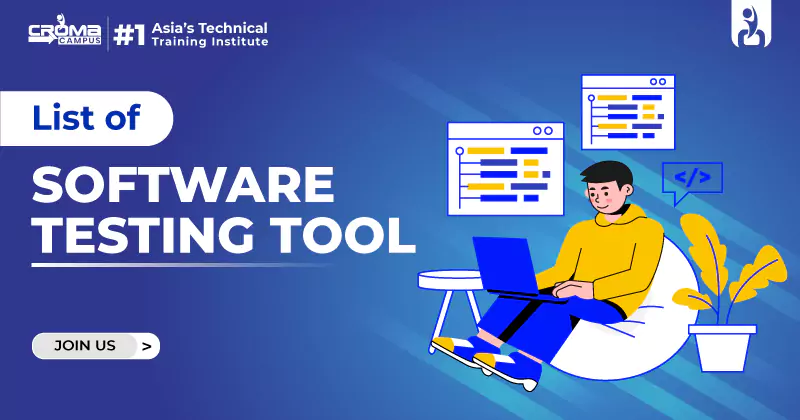


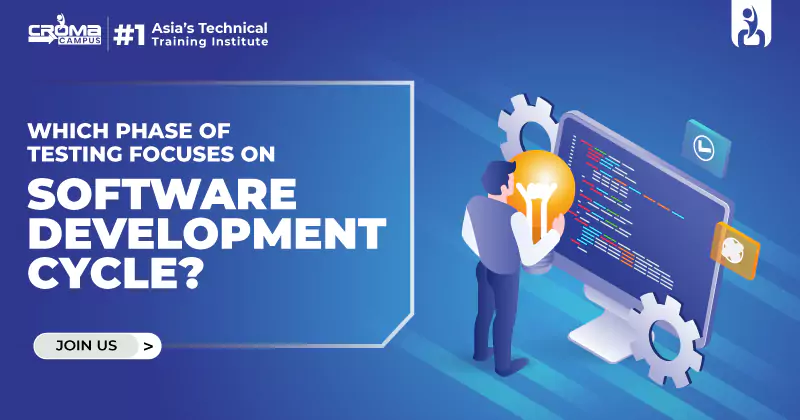
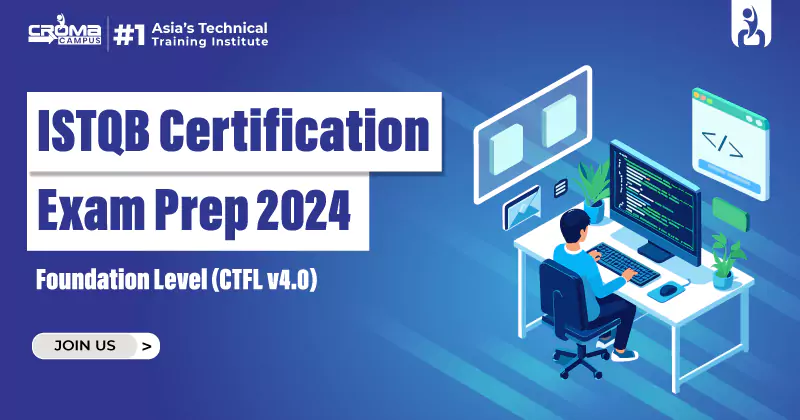










 Master in Cloud Computing Training
Master in Cloud Computing Training